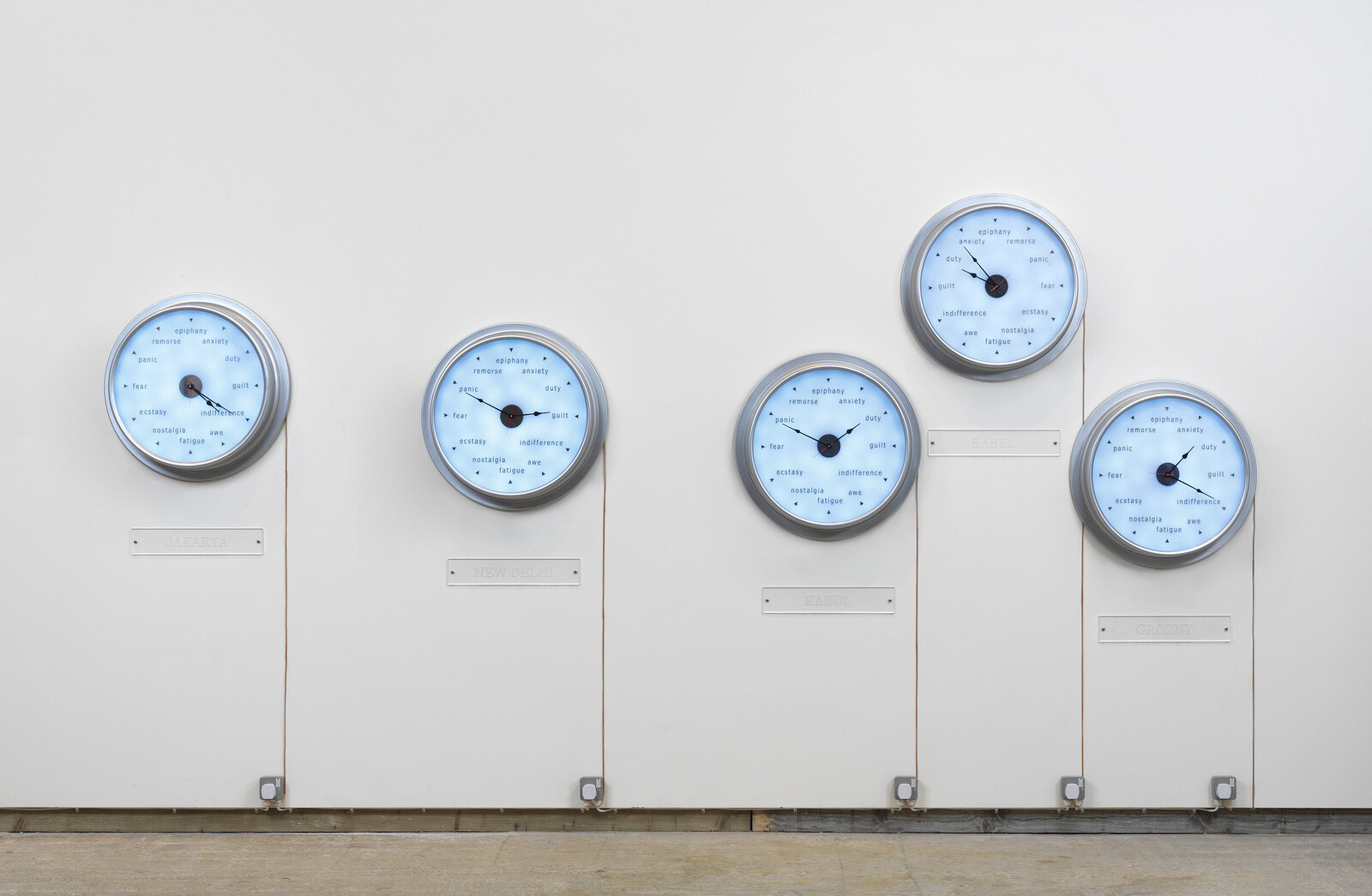The Rearview series addresses blind spots in contemporary art criticism by drawing readers’ attention to an influential text from the past and reflecting on its implications in the present. In this edition, Ania Szremski introduces an essay by Raqs Media Collective first published in e-flux journal.
In their 2014 essay “Is the World Sleeping, Sleepless, or Awake or Dreaming?,” Raqs Media Collective warn against a “debilitating activist insomnia” depriving artists and intellectuals of the ability to dream. These exhausted figures voluntarily give themselves over (via social media, the news cycle, and the busywork of organizing) to sleep deprivation—“the worst, most damaging technique used by torturers.” I read Raqs’ overture to slumber shortly after it was published, while working at an art space in downtown Cairo. Abdel Fattah al-Sisi had just been elected president and was consolidating his oppressive regime; in an adrenalized, dreamless frenzy, I was trying to conduct what I thought of as a dissentious “business as usual,” keeping the gallery open and running a sedulous program in spite of the atmosphere of impossibility. So how seductive it was to read of Raqs’ proposing sleep, not action, as the “gentlest possible refusal of capital’s rapacious claim on time and the human body.” Instead of performing grand acts of revolt—which are still subject to the same old capitalist valorizations of hard work, self-sacrifice, and striving for success—Raqs suggest we could just refuse to perform at all.
The revolutionary potential of inaction was a popular theme around 2014. The novels of Albert Cossery were enjoying a critical resuscitation by those who reappraised his Bartlebian protagonists with new post-2011, post-Occupy eyes. Cossery’s jokers practice an indolence so powerful it throws a wrench into the workings of society—something akin to the Faridabad factory workers in Raqs’ essay, who organized to collectively doze through their night shifts, leaving their bewildered managers ridiculously bereft of power. Another Egyptian author, Haytham El-Wardany, was busy writing his Book of Sleep1, a dreamy text that imagines the emancipatory potential of withdrawing into slumber. He cites, among other sources, Jean-Luc Nancy’s The Fall of Sleep (2007), in which the French thinker muses that, as we doze, we enter our most non-extractive state, consuming nothing but ourselves—a limpid refusal of rapacious capital, indeed. All of these writings colluded to make a quiet disengagement seem essential to renewing the barren imaginations of the under-rested.
Six years later, could the ongoing interlude of mandated collective inaction provide a chance, at last, for a restorative communal siesta? At the end of their text, Raqs invoke Kumbhakarna—a powerful warrior from the Ramayana, who legendarily slept for six months at a time. For Raqs, Kumbhakarna signals “the revolutionary potential of the cultivated hibernation of a reticent strength, whose awakening has consequences.” Sleep is thus figured not as an apathetic retreat from reality, but an insurgent strategy that makes possible reality’s reform. One translation of the ancient Sanskrit epic describes how, upon awakening from his astonishing torpor, Kumbhakarna “will wander over the earth and eat the human race with his mouth wide open, like an augmented fire.”2 If only our current pause would have us awaken with such a raging, annihilating hunger.
Read the essay in e-flux journal:
“Is the World Sleeping, Sleepless, or Awake or Dreaming?” by Raqs Media Collective
Click here to watch an online screening of Raqs Media Collective’s Provisions for Everybody (2018) at Frith Street Gallery, to April 27. The 2020 Yokohama Triennale, directed by Raqs Media Collective and titled “Afterglow,” is scheduled to open on July 3.
Kitab Al-Nawm (The Book of Sleep) was published in Arabic in 2017. The publication by Seagull Books of a translation into English by Robin Moger has been postponed to November 2020 due to the Covid-19 pandemic.
Valmiki Ramayana—Yuddha Kanda in Prose, Sarga 61, trans. K. M. K. Murthy, 2006. https://www.valmikiramayan.net/utf8/yuddha/sarga61/yuddha_61_prose.htm.
